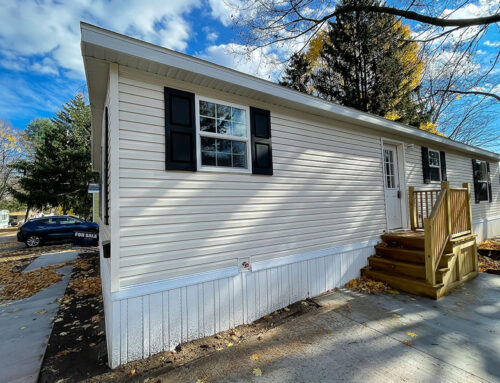I stopped by one of my real estate investment properties last week to see how the rehab project was coming along. One of the contractors I hired looked up from his work and casually said, “You know, this would make a great Airbnb rental!” This idea made me pause for a moment. I’ve been buying ugly houses around New Jersey for several years, so I’ve seen a lot of different real estate strategies. But, the notion of holding a property as a short-term rental hadn’t occurred to me.
While nearby New York City has placed severe restrictions on short-term rentals like those facilitated by Airbnb, this business model is still largely currently unregulated in two of New Jersey’s largest cities: Newark and Jersey City. Both cities offer easy commutes to New York City and a more affordable price point for visitors. It seems that they are ideal locations to set up an investment property as a short-term rental, right? But, while there are definite benefits, I came to realize that it might not be worth the effort.
Is Short-Term Renting a Good Idea for NJ Real Estate Investors?
Airbnb, an online marketplace for short-term rentals, has been at the center of debate in multiple metropolitan areas across the nation recently. Some critics charge that Airbnb hosts do not contribute their fair share of taxes the same way that hotels do. Others feel that Airbnb hosting raises their local rents or disrupts neighborhoods by drawing in strangers. But, for property owners, it clearly has the potential to be a money-making machine.
Let’s think about Newark, for instance. The average monthly rent for a two-bedroom apartment there is around $2460. That’s roughly $82 a night for a long-term tenant. With Airbnb, 2 bedrooms go for $150/ night and up. Without even doing the math, you can see that the per-night revenue from a short-term renter is about double. And, that’s just to start. When events are happening in town, short-term rents can go much, much higher. In New Jersey last year, Airbnb hosts brought in a combined $50 million in rental income!
What’s more, managing a rental through Airbnb is relatively easy. The company takes care of all the lead generation for short-term tenants and handles all the billing for you. Communication with prospective short-term tenants is smooth through their website interface, so answering questions and getting bookings can be seamless. And, gaining momentum with this sharing economy tool doesn’t take long. After you book a few guests and get their reviews, more will trust your listing and want to stay in your property.
That said, there are some downsides to renting out with Airbnb as well. While this list is not meant to be comprehensive, here are a few things to keep in mind:
Cleaning costs.
Your out-of-pocket expense for cleaning will vary depending on how much turnover your rental gets. Some Airbnb hosts mitigate this cost a bit by setting minimum-stay policies or charging a cleaning fee.
Insurance.
You will probably want to replace your homeowner or landlord policy with one that covers vacation rentals. These policies tend to be business-oriented, providing coverage for the property, contents, commercial liability, and business income.
Association rules.
Some homeowner or condo associations restrict short-term renting of a property. An aggressive condo association could fine rule breakers. These rules may become more common as the popularity of short-term rentals in New Jersey rises.
Tax ramifications.
Well, this is the Pandora’s Box for short-term rentals. You can imagine that lots of property owners do not include the revenue they get on their income taxes. But, it is indeed taxable income according to the federal government.
Here in New Jersey, things could get even more difficult for Airbnb hosts. The state’s Assembly Tourism, Gaming, and the Arts Committee voted in February to pass measures that would impose new taxes and regulations. The first bill will require short-term rentals established through online marketplaces like Airbnb to pay the same state and municipal taxes that hotels and motels do. The second measure establishes the ability to regulate short-term rentals at the municipal level. That means cities like Newark and Jersey City could start licensing short-term rentals or, like in New York, even pass ordinances to prohibit property owners from renting out their space for less than a month.
What Could be Better?
Using a short-term rental marketplace may seem like a good money-maker for your investment property but you need to weigh the benefits against the risks carefully. As an experienced real estate investor, I prefer to simply sell the property quickly in order to gain the working capital to invest again—and potentially make even more money. My HomeVestors® franchise has access to a large network of buyers ready to make a deal. And, I am confident in every investment my franchise makes because I have the marketing tools and resources for good deals to come my way. If you would like to know more about how you can advance your real estate investing opportunities, get in touch today.
Each franchise office is independently owned and operated.
Photo Credit: Flickr CC user OuiShare.
Contact
"*" indicates required fields





